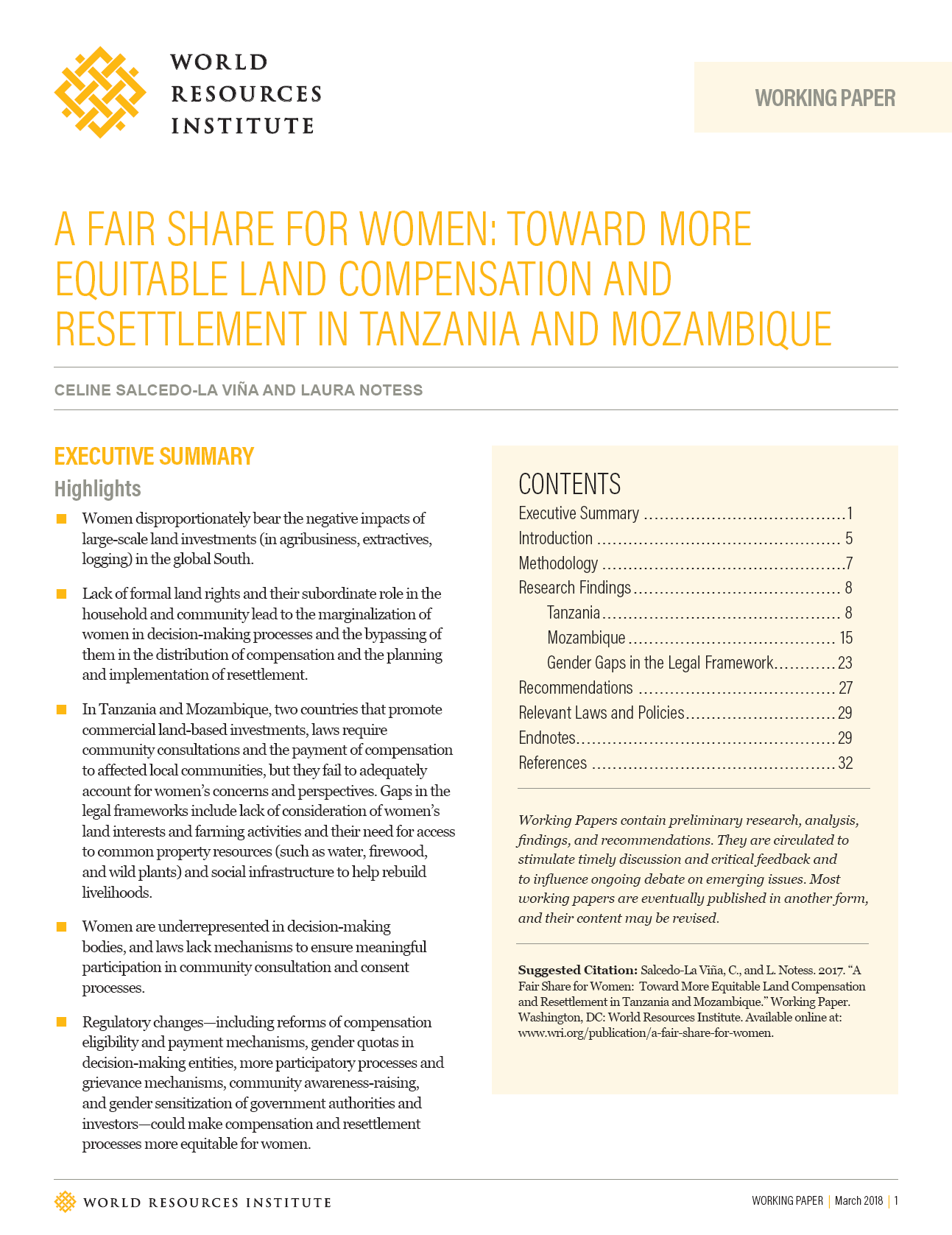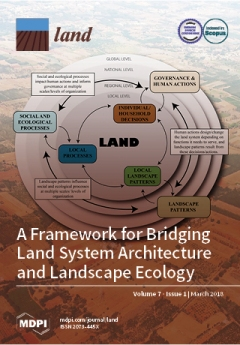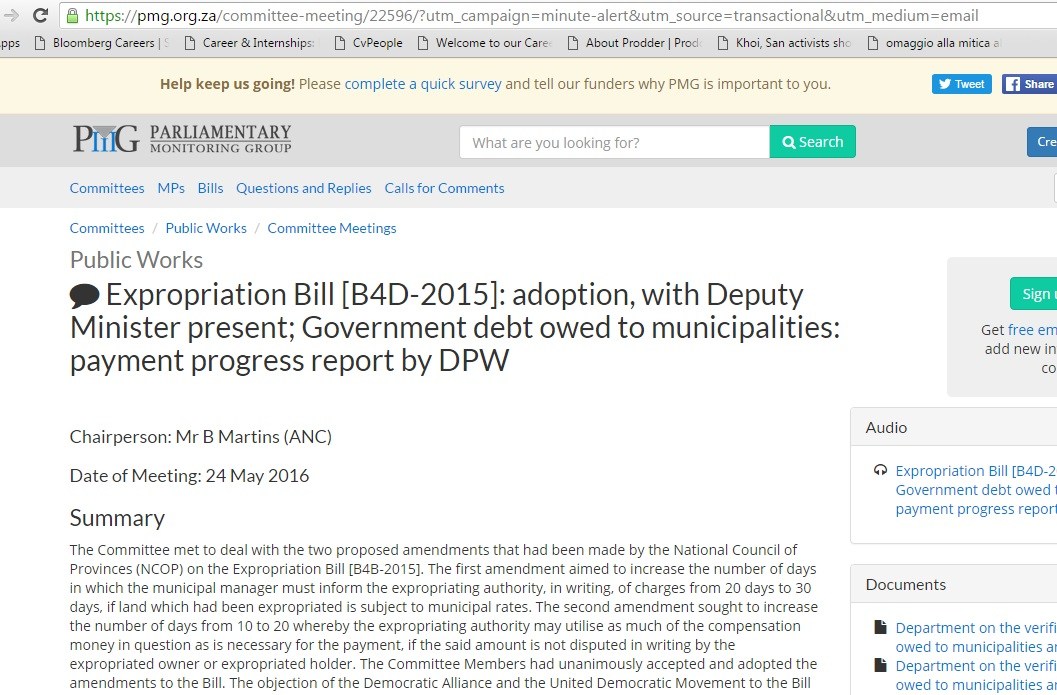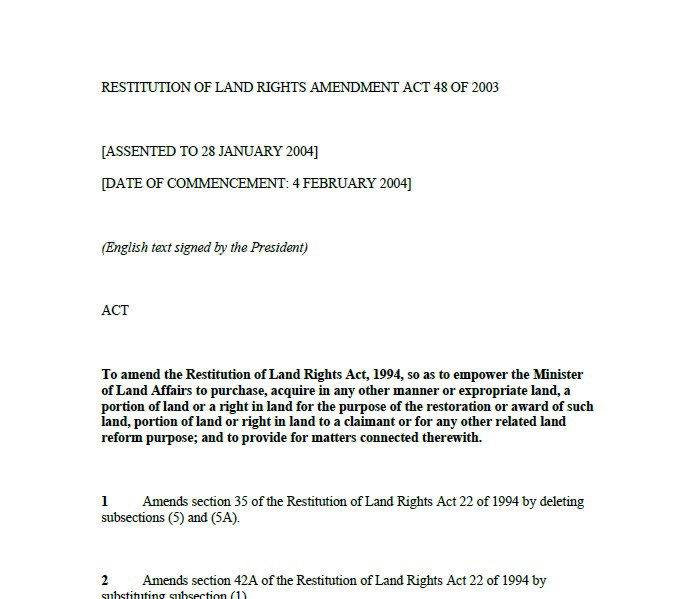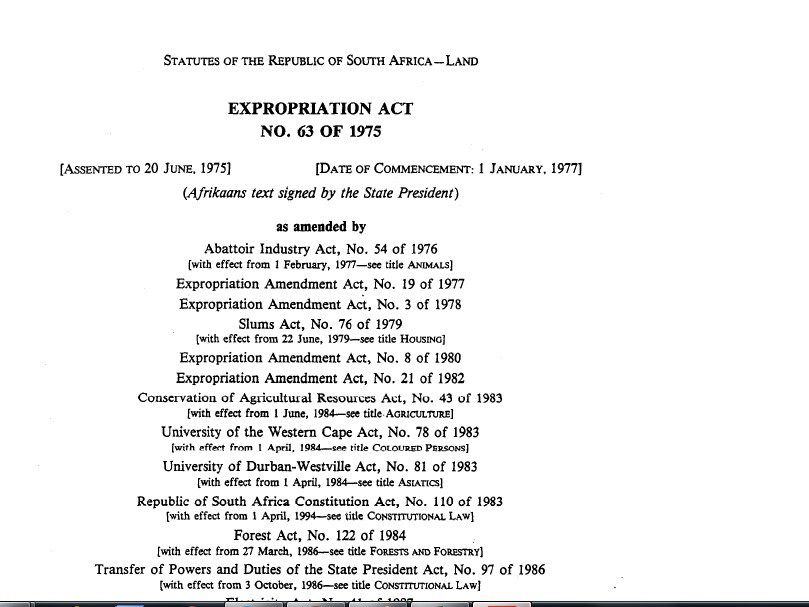A Fair Share for Women: Toward More Equitable Land Compensation and Resettlement in Tanzania and Mozambique
Tanzania and Mozambique — countries of vast mountain ranges and open stretches of plateaus — now face a growing land problem. As soil degradation, climate change and population growth place enormous strains on the natural resources that sustain millions of people, multinational companies are also gunning for large swaths of land across both countries. Caught between these pressures, many poor, rural communities get displaced or decide to sell their collectively held land.

